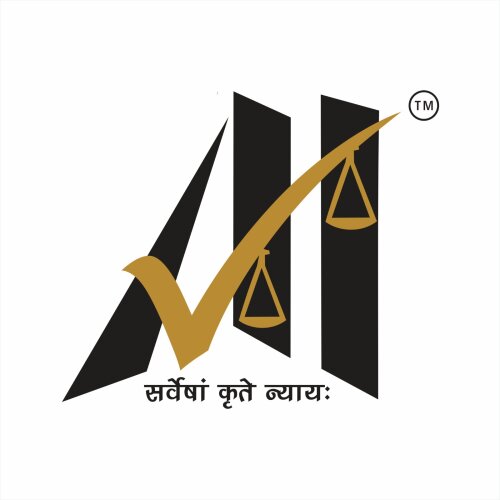Best Auto Dealer Fraud Lawyers in Jaipur
Share your needs with us, get contacted by law firms.
Free. Takes 2 min.
List of the best lawyers in Jaipur, India
About Auto Dealer Fraud Law in Jaipur, India
Auto dealer fraud refers to the deceptive or fraudulent practices that occur during the sale, lease, or advertising of motor vehicles by auto dealers. In Jaipur, India, as in other parts of the country, consumers may encounter various forms of dealer misconduct, including odometer tampering, non-disclosure of vehicle defects, and misrepresentation of financing terms. The legal framework in India, including the Consumer Protection Act, 2019, and the Motor Vehicles Act, 1988, provides avenues for seeking redress against such unethical practices.
Why You May Need a Lawyer
Legal advice may be necessary in several common situations involving auto dealer fraud, such as:
- Discovering undisclosed defects in a purchased vehicle.
- Finding out that the vehicle's mileage has been tampered with.
- Encountering misleading information regarding vehicle warranties or guarantees.
- Facing improper repossession of a vehicle due to false financing terms.
- Needing assistance in filing a complaint or lawsuit against a fraudulent dealer.
In such scenarios, a lawyer experienced in consumer protection and auto dealer fraud can help victims understand their rights, gather evidence, and pursue appropriate legal actions.
Local Laws Overview
Several key legal provisions are particularly relevant to auto dealer fraud in Jaipur, India:
- Consumer Protection Act, 2019: This act empowers consumers with rights against unfair trade practices and deceptive acts. It includes provisions for filing complaints in consumer forums against frauds.
- Motor Vehicles Act, 1988: This act mandates transparency in the buying and selling process of vehicles and provides regulation for odometer tampering and other fraudulent practices.
- Indian Penal Code, 1860: Under sections related to cheating and criminal misrepresentation, penal actions can be initiated against unscrupulous dealers.
- Sale of Goods Act, 1930: Provides a framework for implied warranties and conditions pertaining to the sale of goods, which includes vehicles.
Frequently Asked Questions
What constitutes auto dealer fraud?
Auto dealer fraud involves practices like misrepresentation in advertising, non-disclosure of vehicle history or defects, odometer fraud, and deceptive financing agreements.
How can I prove auto dealer fraud?
Evidence such as written communication, advertisement copies, vehicle inspection reports, and financial agreements can help prove fraud.
How do I file a complaint against an auto dealer in Jaipur?
You can file a complaint with the National Consumer Disputes Redressal Commission or the State Consumer Disputes Redressal Commission if statecentric, depending on the claim amount.
What are my rights as a victim of auto dealer fraud?
As a consumer, you have the right to seek redressal for unethical practices and may be eligible for compensation, replacement, or refund depending on the case.
Can I sue for emotional distress due to auto dealer fraud?
While the primary focus is on financial damage, you can mention emotional distress as part of the broader impact on the consumer in legal complaints.
What are the typical penalties for auto dealer fraud?
This can result in the cancellation of business licenses, fines, and compensation orders and, in severe cases, criminal penalties under applicable laws.
Is there a time limit to file a fraud complaint?
Yes, typically consumer disputes should be filed within two years from the date of the incident. However, legal advice can offer clarity based on specific circumstances.
Can an auto dealer refuse to provide a refund?
Unless there is a valid reason, denying a refund for proven fraud can lead to further legal implications for the dealer.
What role does the Motor Vehicles Department play?
The Department ensures compliance with regional transport laws and can be a resource for registration-related complaints and discrepancies.
Will hiring a lawyer guarantee a successful outcome?
While it does not guarantee success, a lawyer can significantly enhance your case by navigating legal nuances effectively.
Additional Resources
- Consumer Helpline: The national consumer helpline is available for preliminary assistance.
- Jaipur Consumer Forum: Local consumer redressal options tailored to execute region-specific laws.
- Transport Department Rajasthan: Useful for vehicle registration verification and relating issues.
- Legal Aid Services: Organizations offering free or subsidized legal advice to consumers in need.
Next Steps
If you need legal assistance in dealing with auto dealer fraud:
- Document all interactions with the dealer, focusing on preserving evidence.
- Contact a lawyer who specializes in consumer protection and auto dealer fraud.
- Reach out to local consumer protection offices or support organizations in Jaipur for guidance.
- Consider mediation or alternative dispute resolution if suggested by your lawyer as a first step.
- If necessary, be prepared to pursue legal action to resolve the issue.
Lawzana helps you find the best lawyers and law firms in Jaipur through a curated and pre-screened list of qualified legal professionals. Our platform offers rankings and detailed profiles of attorneys and law firms, allowing you to compare based on practice areas, including Auto Dealer Fraud, experience, and client feedback.
Each profile includes a description of the firm's areas of practice, client reviews, team members and partners, year of establishment, spoken languages, office locations, contact information, social media presence, and any published articles or resources. Most firms on our platform speak English and are experienced in both local and international legal matters.
Get a quote from top-rated law firms in Jaipur, India — quickly, securely, and without unnecessary hassle.
Disclaimer:
The information provided on this page is for general informational purposes only and does not constitute legal advice. While we strive to ensure the accuracy and relevance of the content, legal information may change over time, and interpretations of the law can vary. You should always consult with a qualified legal professional for advice specific to your situation.
We disclaim all liability for actions taken or not taken based on the content of this page. If you believe any information is incorrect or outdated, please contact us, and we will review and update it where appropriate.









